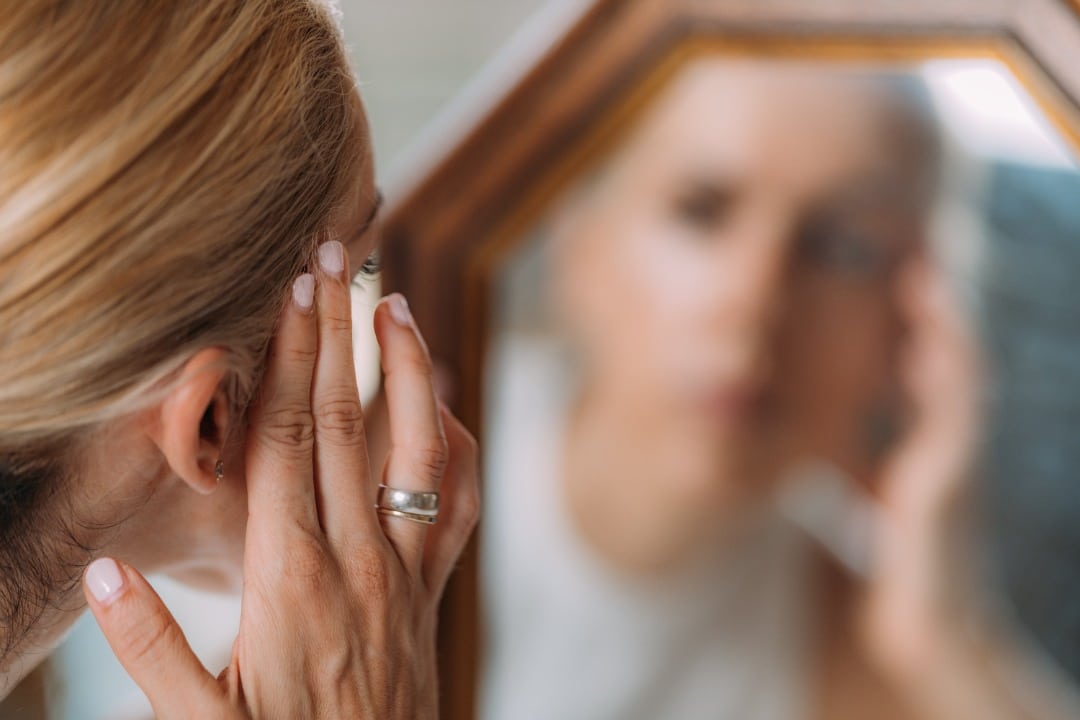Body image issues can affect people of all ages, shapes, sizes, races, and backgrounds, as society has a way of instilling unrealistic expectations for how we’re supposed to look. When we don’t meet those standards, we feel the need to talk down to ourselves and potentially take extreme measures to achieve those results. Many automatically assume body dysmorphia remains exclusive to people struggling with an eating disorder. However, that is not always the case.
If you have ever wondered, “can you have body dysmorphia without an eating disorder” we’re here to help dispel some myths surrounding it, discuss the symptoms, who they affect, and what you can do to seek the help you need.
What Is Body Dysmorphia?
While body dysmorphia can go hand-in-hand with eating disorders, that doesn’t mean they’re mutually exclusive. A body dysmorphic disorder (BDD) happens when someone becomes overly concerned with their outward appearance, perceived flaws, and how the rest of the world views their appearance. They become obsessed with how a specific part of their body looks, which can quickly become detrimental to their physical and mental health.
People with BDD often view their bodies through a lens of never being enough or worthy of consideration as “looking good.” Everything from their hair, skin, nose, belly, and more can become part of their fixation. Body dysmorphia isn’t currently classified as an eating disorder but falls in the category of “obsessive-compulsive and related disorders.”
The Most Common Symptoms of BDD
Identifying the differences between BDD and other common eating disorders means knowing their subtle yet crucial differences. While both center around disordered thinking about how we look, the response to those thoughts drastically differs across the board.
While most eating disorders involve physical actions to gain control over their desired body, BDD focuses more on psychological responses. People suffering from BDD tend to focus on their perceived deficiencies, constantly checking the mirror, picking at their skin, and more. This obsession can impact their social relationships, work responsibilities, and other areas of their lives.
BDD and Its Relationship With Eating Disorders
While these conditions share common features, and people suffering from an eating disorder can have body dysmorphia, they aren’t the only ones that can. While studies have shown that 12% of people with BDD have some form of eating disorder, it’s not a requirement for a diagnosis.
Body dysmorphia can happen when the person in question focuses on a specific body — for example, nose size — and becomes obsessed and fixated on that. They become so focused on what they believe is wrong with their nose that they spend endless hours trying to figure out how to make it look smaller and, in some cases, opt for a surgical procedure to reduce its size.
Treatment Options for BDD
Fortunately, for those suffering from body dysmorphic disorder, there are treatment options available that can help. Finding a mental health treatment center in Columbiana, AL, can help you receive the care and treatment needed to get on your road to recovery. Learning to accept your body for the marvel that it is becomes easier when you have an experienced mental health professional to help you work through your complicated feelings.
If you or someone you love suffers from body dysmorphic disorder, don’t hesitate to get the necessary help and support. Contact Magnolia Creek Treatment for Eating Disorders at 866-319-5117 and learn more about our personalized treatment programs.




